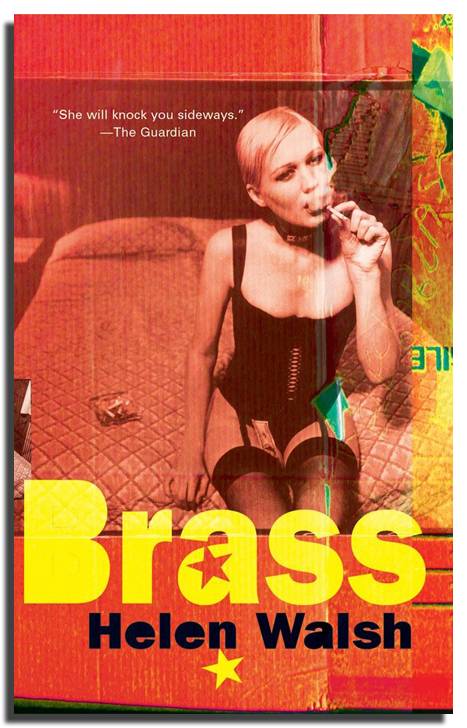Brass
Helen Walsh
From Publishers Weekly
Along with recent noteworthy debuts from Bella Bathurst (Special) and Jardine Libaire (Here Kitty Kitty), this novel is part of an emerging subgenre that might be called chick-lit noir. Its antiheroines are motivated–if you can call it that–by a creeping anomie and low-grade nihilism. If these girls have any ambitions at all, they are emotional abnegation, deranged sexual pleasures and/or chemical obliteration. Walsh’s 19-year-old Millie could be the poster child for the subgenre as she bombs around her native Liverpool, lusting after barely adolescent girls and packing her head with booze and blow. Precocious, petulant, middle-class Millie has been ‘thick as thieves’ with a posse of thuggish working-class guys since she was barely a teenager. But her best friend Jamie’s increasing commitment to his fiancée has created a ‘big dilating chasm’ between them and has exacerbated Millie’s tendency toward self-destructive behavior. Haunted by her perceived loss of Jamie and the painful memory of her estranged mother, ‘the savage and gradual build-up of [years of] filth and deceit’ finally catches up with her and sends her spiraling into depravity. Millie’s caustic commentary on the electro-charged sexual and intellectual power of postadolescent women heralds the arrival of a promising new voice from the darker fringes of antigirlhood.
Copyright © Reed Business Information, a division of Reed Elsevier Inc. All rights reserved.
From The New Yorker
This début novel reaches out to its target audience quickly. Millie, a student in Liverpool and one of two first-person narrators, introduces herself by having sex in a graveyard with a female prostitute, snorting cocaine (‘beak’), and rhapsodizing about the sky. Her co-narrator, Jamie, speaks in opaque Liverpool slang (in a musical substitution, ‘lad’ becomes ‘la’) and tries to keep up with his friend’s string of self-debasing escapades. Millie’s journey is a classic bildungsroman, a reckoning of her parents’ sudden separation and a thoughtful, if expensive, interrogation of sex and friendship. All this might amount to no more than a voguish blend of Irvine Welsh and Michel Houellebecq, but Walsh’s prose is rhythmic and carefully judged, and her descriptions are convincingly tactile. Every time an uncomfortable situation occurs, she holds steady and makes each miserable moment sink in.
Copyright © 2005 The New Yorker
Check for it on:
Details
| ISBN | 9781841954844 |
| Genre | Fiction |
| Copyright Date | 2004 |
| Publication Date | 15-Oct-04 |
| Publisher | Canongate Books |
| Format | Trade Paperback |
| No. of Pages | 296 |
| Language | English |
| Rating | NotRated |
| Subject | Fiction / General; Fiction / Literary; Women; Women/ Identity/ Fiction |
| BookID | 1476 |

